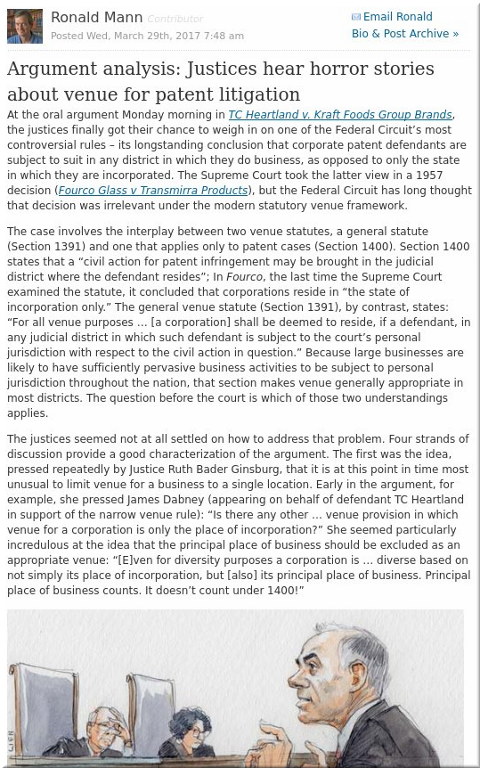

Reference: Argument analysis: Justices hear horror stories about venue for patent litigation
According to Lex Machina, which is an invaluable service as we said yesterday, there may be a massive patent troll in the making. Several days ago the patent trolls' lobby said that Alan Loudermilk is behind the entity named 511 Technologies, based in Marshall, Texas (where many of the trolls reside). It's not actually a company, even if it has the word "Technologies" in its name (we recently wrote about other trolls that do this). Loudermilk, who founded this troll, has since then created what looks like another troll, Ginocchio Properties LLC, based in the same place. Will TC Heartland help squash these? We certainly hope so, but in the meantime, we have this to worry about:
Among the segments Maxell no longer operates in is magnetic tape cartridges. Once one of the most recognisable products under the Maxell brand, the company shuttered the division in 2014. That decision left only Fujifilm and Sony competing in the market, and according to USPTO assignments records from September, it is the former company that has benefitted patent-wise from its erstwhile rival's withdrawal. Maxell transferred 53 US patents related to magnetic tapes to Fujifilm in two separate assignments on 1st September. Notably, Fujifilm is locked in a litigation fight with Sony over that same technology. As this blog detailed last week, the two sides are currently contesting an ITC investigation that could have huge implications for the availability of SEP injunctions in that venue going forward.
[...]
Loudermilk’s most recent venture is 511 Technologies, Inc, which filed 11 patent suits over the past two years against companies including Huawei, Qualcomm and Microsoft, all of which have resulted in either a voluntary or stipulated dismissal, according to Lex Machina. Previously, he was CEO of Solid State Storage Solutions, Inc, which acquired a portfolio of patents from Japan’s Renesas and asserted them against eight companies in 2011 and 2012 before transferring a portion of them to Acacia two years ago.
On the patent side, the court cited to Bonito Boats, Inc. v. Thunder Craft Boats, Inc., 489 U.S. 141 (1989) statements that state laws that offer “substantially similar” protections are preempted by federal patent law and thus not enforceable.
As with copyright law, the appellate panel here suggested that torts that require “deceit” or “improper means” will be acceptable, but laws that focus simply on protecting the investment in product development and marketing will be preempted.
Regardless of this technicality, the rule appears now that district courts should be considering and granting improper venue decisions moving forward.
The Federal Circuit has granted Micron’s mandamus petition stating: “We conclude that TC Heartland changed the controlling law in the relevant sense: at the time of the initial motion to dismiss, before the Court decided TC Heartland, the venue defense … based on TC Heartland’s interpretation of the venue statute was not ‘available’”